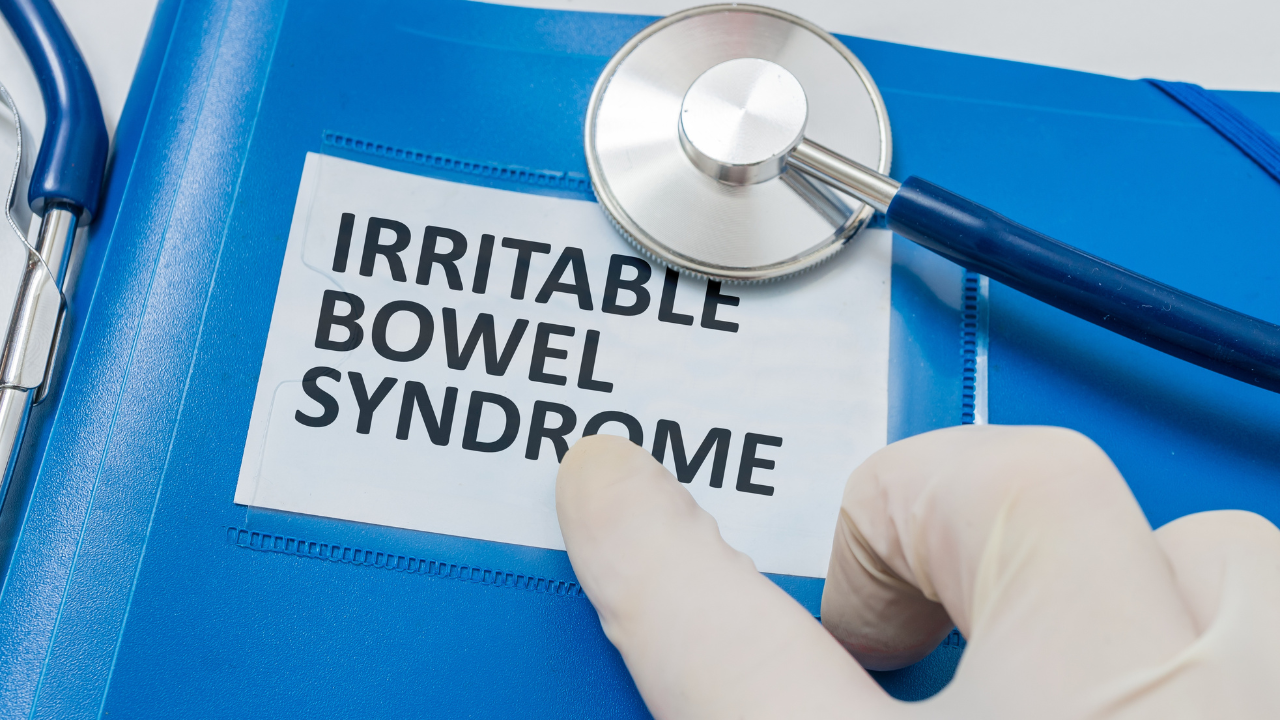Effective Home Remedies for Irritable Bowel Syndrome (IBS)
Irritable bowel syndrome affects how the gut functions, not how it looks on standard tests. Symptoms can include cramping, bloating, irregular bowel habits, and food sensitivities that change week to week. The right home strategy can lower day-to-day discomfort and help you feel more in control of flares.
This guide explains evidence-informed home remedies for IBS and how to use them safely. You will learn which diet changes help most, including soluble fiber, hydration, and a short-term low-FODMAP trial.
We cover supplements and botanicals such as enteric-coated peppermint oil, probiotics, magnesium for constipation-predominant IBS, ginger, and sleep-supporting melatonin. You will also find practical lifestyle tools like stress reduction, gentle exercise, and sleep hygiene.
Use this as a starting point to personalize your plan. Introduce changes gradually, track your response, and partner with a clinician if symptoms persist or worsen.
What Is IBS?
Irritable bowel syndrome is a functional gut disorder characterized by abdominal pain or discomfort with changes in bowel habits.
It is classified by stool pattern into IBS-C (constipation-predominant), IBS-D (diarrhea-predominant), and IBS-M (mixed). Symptoms often fluctuate and may worsen with stress, illness, or dietary triggers.
Common symptoms
Recurrent abdominal pain or cramping
Bloating or gas
Constipation, diarrhea, or both at different times
A sense of incomplete evacuation
Symptom relief after a bowel movement
How clinicians make the diagnosis
Pattern of symptoms that recur over time
Normal basic testing to exclude other conditions when indicated
Identification of personal triggers to guide therapy
IBS does not cause visible damage to the intestines on routine tests, which is why management focuses on reducing symptoms and improving quality of life.
How to Use Home Remedies Safely
Home strategies can lessen day-to-day symptoms, but they should complement medical care. Aim for a measured, personalized approach that respects your unique triggers.
Principles to follow
Start low and go slow to limit side effects.
Change one variable at a time so you can see what helps.
Keep a brief food and symptom log for two to four weeks.
Review medications with a clinician to check for interactions.
Stop and seek care if symptoms worsen or red flags appear.
When to consult a clinician first
Unintended weight loss, rectal bleeding, fever, or nighttime symptoms
New bowel changes after age 50
History of inflammatory bowel disease, celiac disease, or cancer in close relatives
Pregnancy, significant medical conditions, or use of multiple medications
Set realistic expectations. Many people notice early improvements within two to four weeks, while others need a longer trial and combination strategies guided by a healthcare professional.
Diet Strategies for IBS Relief
Food choices can calm symptoms when you personalize them to your triggers. Start with simple adjustments and build from there.
Keep a Food and Symptom Diary
A short daily log helps you spot patterns between meals and symptoms. Track foods, portion sizes, timing, stress, and GI changes. Review weekly to identify likely triggers.
Focus on Soluble Fiber
Soluble fiber softens stool and supports a steadier bowel rhythm.
Foods to try: oats, barley, chia, flaxseed, cooked carrots, lentils
Consider psyllium if food changes are not enough
Increase gradually and pair with water to reduce gas and bloating
Consider a Short-Term Low-FODMAP Trial
This structured approach reduces certain fermentable carbs, then reintroduces foods to learn personal tolerance.
Three phases: brief restriction, stepwise reintroduction, personalization
Best done with guidance from a clinician or dietitian
Aim for the least restrictive long-term plan that controls symptoms
Hydration and Smart Beverage Choices
Prioritize water throughout the day
Limit alcohol, energy drinks, and very sweet beverages
Choose low-caffeine or decaf options if stimulants worsen cramps or diarrhea
Carbonated drinks can increase bloating for some people
Evidence-Informed Supplements and Botanicals
Some over-the-counter options can help when chosen carefully. Introduce one at a time and monitor effects.
Peppermint Oil
Enteric-coated capsules may ease cramping and abdominal pain by relaxing intestinal smooth muscle.
Possible side effects: heartburn or reflux
Avoid if peppermint worsens reflux or interacts with your medications
Probiotics
Probiotics can support microbial balance and may reduce gas, bloating, or irregularity.
Effects are strain specific and usually modest
Trial a single product for 4 to 8 weeks before switching
Magnesium for Constipation-Predominant IBS
Osmotic forms draw water into the bowel and can soften stool.
Useful mainly for IBS-C
Too much can cause loose stools
People with kidney disease should consult a clinician first
Ginger and IBS-Friendly Teas
Ginger may reduce nausea and support motility. Gentle teas like peppermint, ginger, or chamomile can be soothing.
Choose low-caffeine varieties
Brew mild to minimize irritation
Melatonin
Better sleep can improve symptom perception, and melatonin may influence gut motility in some people.
Discuss timing and dose with a clinician
Avoid combining with other sedatives without medical advice
Introduce these options alongside diet and lifestyle changes. If symptoms persist, review your plan with a qualified healthcare professional.
Lifestyle and Mind-Body Approaches
Stress Reduction
The gut and nervous system communicate closely, so daily stress management can meaningfully reduce IBS pain, urgency, and bloating. Diaphragmatic breathing lowers abdominal muscle tension and can ease cramps within minutes. Mindfulness practices help you notice early signs of a flare and respond more calmly, which may prevent symptom spirals.
Cognitive strategies, such as reframing catastrophic thoughts and pacing busy days, can reduce the stress–symptom loop. Aim for brief, consistent practice rather than long, occasional sessions.
Movement and Exercise
Gentle, regular activity supports motility and helps regulate stress hormones. Most people do well starting with low to moderate intensity options like walking, cycling, or yoga for 20 to 30 minutes most days.
If symptoms are sensitive to jostling, choose smoother movements and avoid exercising immediately after large meals. Increase duration gradually as your tolerance improves and keep hydration steady before and after sessions.
Try a 10 to 15 minute walk after meals if you are prone to constipation
On high-symptom days, switch to stretching or restorative yoga
Sleep Hygiene
Poor sleep heightens pain sensitivity and GI reactivity. A consistent sleep schedule, morning light exposure, and a simple wind-down routine can steady circadian rhythms and reduce next-day symptoms.
Keep the bedroom cool, dark, and quiet, limit large meals and caffeine late in the day, and finish screens at least one hour before bedtime. If nighttime symptoms wake you, jot a brief note and return to a calming technique, such as slow breathing.
Heat and Abdominal Massage
Local heat can relax intestinal muscle and lower pain perception during cramping. Apply a warm compress or heating pad over clothing for short intervals and assess your response.
Gentle clockwise abdominal self-massage may also ease gas and promote motility. Use light pressure, stop if pain increases, and avoid vigorous techniques during acute illness.
Limit heat sessions to comfortable, short periods
Do not use heat on broken skin or if you have reduced sensation
Managing Flares
Flares are common even with a solid plan. Prepare a simple approach you can follow for one to three days. Favor bland, lower fat meals that you tolerate well, such as oatmeal, rice, bananas, lean proteins, or simple soups.
Sip fluids throughout the day and consider an oral rehydration or electrolyte solution if diarrhea is prominent. Pause new supplements and hold fiber increases if gas or cramping is severe, then reintroduce slowly as symptoms settle.
Rest as needed, use heat or relaxation techniques for pain, and resume gentle walking when able. Seek medical advice promptly for red flags like bleeding, fever, persistent vomiting, significant dehydration, or new severe pain.
Safety, Interactions, and Who Should Avoid Certain Remedies
Home remedies are not risk free. Peppermint oil can relax the lower esophageal sphincter and may worsen reflux in sensitive individuals. Magnesium can trigger diarrhea and is not appropriate for people with significant kidney disease unless a clinician supervises dosing.
Probiotics are generally well tolerated, but those who are severely immunocompromised or have central lines should review options with their medical team first. Melatonin can cause morning grogginess or interact with other sedatives, so begin with a low dose and discuss timing with a clinician.
Diet changes also require care. Rapid fiber increases often lead to gas and cramping, and very low FODMAP eating should be time limited with a plan to reintroduce foods. People who are pregnant, underweight, have a history of eating disorders, or have complex medical conditions should avoid restrictive diets without professional guidance.
If you take prescription medications, confirm there are no interactions with supplements, especially antacids, anticoagulants, thyroid medication, or drugs that affect the central nervous system.
Who should exercise extra caution
Anyone with kidney or liver disease
People who are pregnant or breastfeeding
Individuals with significant reflux or swallowing problems
Those who are immunocompromised or on multiple interacting medications
When in doubt, personalize your approach with your healthcare professional and introduce one change at a time.
When to See a Clinician
IBS is a diagnosis of exclusion, so new or changing symptoms deserve a careful look. Seek medical care promptly for red flags such as rectal bleeding, black stools, unexplained weight loss, persistent fever, anemia, nighttime symptoms that wake you from sleep, or severe pain that is different from your usual pattern.
New bowel habit changes after age 50, a family history of colorectal cancer, celiac disease, or inflammatory bowel disease, and symptoms that do not improve despite several weeks of structured home care all warrant evaluation.
A clinician can confirm the diagnosis, check for conditions that mimic IBS, and help you select targeted therapies. Many people benefit from a short course of prescription options paired with diet and lifestyle adjustments.
If stress, anxiety, or mood symptoms are prominent, ask about gut-directed behavioral therapies. Early support improves quality of life and reduces the risk of prolonged flares.
References
Magge, S., & Lembo, A. (2012). Low-FODMAP Diet for Treatment of Irritable Bowel Syndrome. Gastroenterology & hepatology, 8(11), 739–745.
Patel N. V. (2021). "Let Food Be Thy Medicine": Diet and Supplements in Irritable Bowel Syndrome. Clinical and experimental gastroenterology, 14, 377–384. https://doi.org/10.2147/CEG.S321054
read this next





